

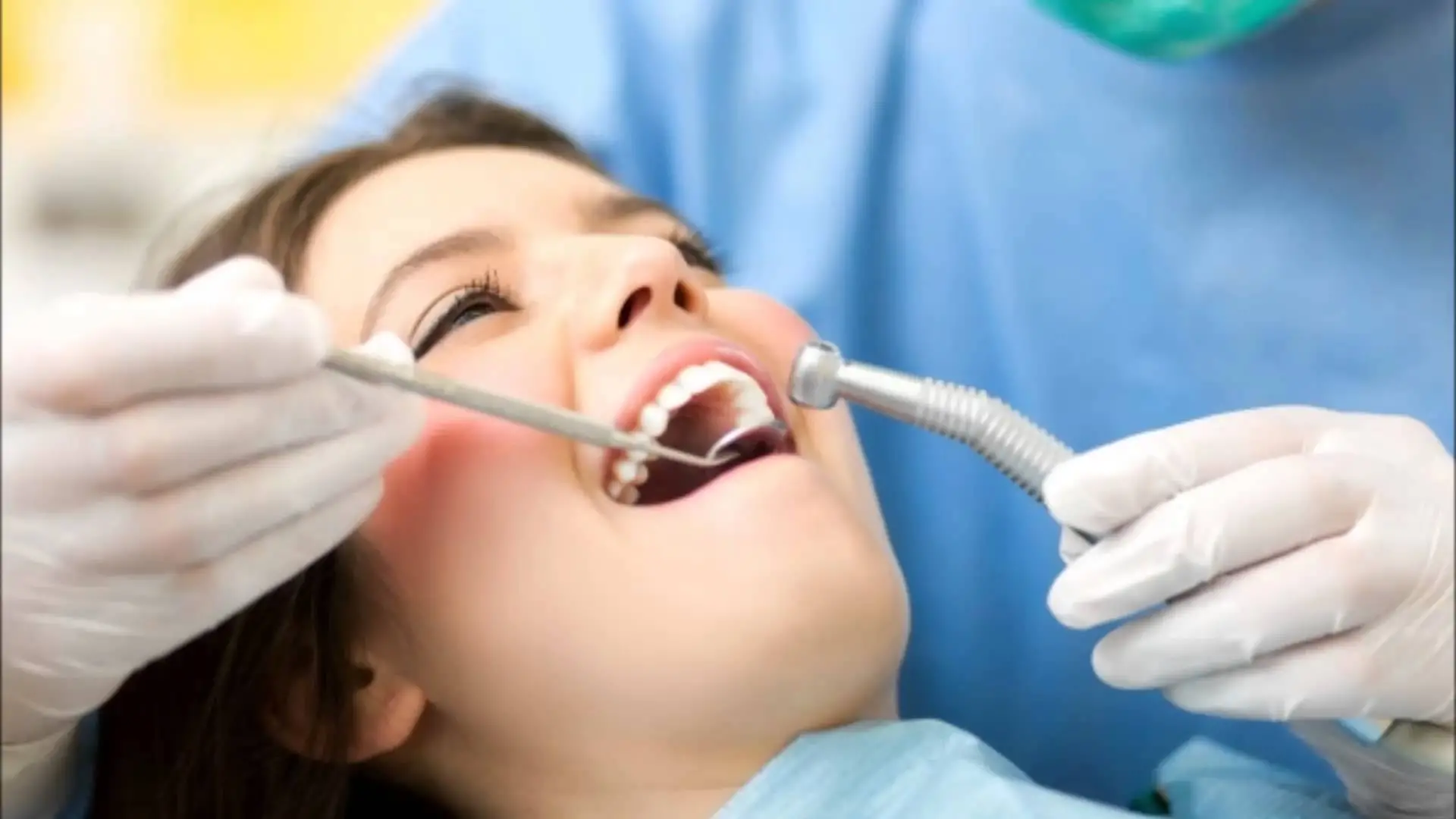







Do you have white patches in your mouth and you're not sure what causes them? Find out what's causing your white spots, what symptoms they cause, and how they can be treated.
Are you experiencing any pain or discomfort on the inside of your mouth? Do you experience excruciating pain in the white patches that appear in your mouth? There could be a number of factors contributing to these annoying white spots. And while it is true that if they are not treated they may eventually disappear, it is also possible that these white patches are related to health conditions that need to be treated by either your dentist or your doctor. Continue reading if you've experienced any of the symptoms described above so that you can learn how to bring them under control.
Sores of the mouth and the cold sores
Canker sores, also known as apthous ulcers, are frequently mistaken for cold sores, but there is no comparison between the two types of sores. An ulcer that forms on the floor of the mouth is medically referred to as a canker sore. A cold sore is a viral infection that manifests as a fluid-filled blister on the outside of the mouth, most commonly on the lips. Cold sores are caused by the herpes simplex virus. In contrast to a canker sore, a cold sore is caused by the herpes simplex virus (HSV), and if it is not treated, it can spread to other people very easily. Canker sores are more of a painful annoyance than anything else, and they can go untreated for a long time.
Canker sores are one of the most common oral conditions that people experience. The majority of people who have canker sores only experience them on an occasional basis. However, between twenty and thirty percent of those who have them experience recurrent outbreaks. Canker sores are painful mouth ulcers that typically appear three to four times per year and last for about a week each time. Canker sores that are complex are more severe in both size and pain, and they can last for up to a month.
Causes of mouth ulcers known as cankers
Canker sores are caused by a variety of factors, including but not limited to hormonal shifts, stress, and physical mouth trauma. Canker sores can also be caused by eating certain foods, such as citrus fruits. Deficiencies in essential vitamins, such as vitamin B12, iron, folic acid, and zinc, can also contribute to the issue.
Canker sores' telltale signs and symptoms
Canker sores are ulcers that develop on the gums and other soft tissues of the mouth. They can be round or oval in shape, and the perimeters are colored red, while the interior is white or a very pale yellow. Before the full effect takes hold, you might experience a stinging or burning sensation. Another symptom is a painful stinging sensation, which is especially noticeable when eating or talking.
Canker sore treatments and remedies
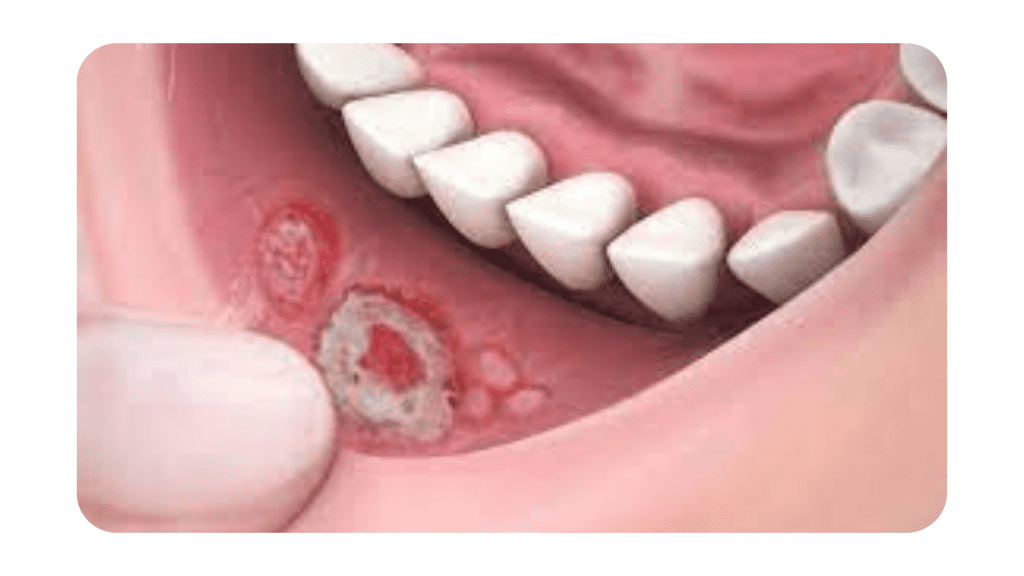
Rinse your mouth with a solution of baking soda and water, or saltwater, to assist in the treatment of your canker sores. You could also try applying a dab of milk of magnesia directly to the wound to see if it helps. Both of these approaches can be repeated multiple times throughout the course of a single day.
If your symptoms have been going on for more than two weeks, getting worse with home remedies, occurring several times per year, or are severe, you should schedule an appointment with your dentist. In the event that your canker sores are accompanied by other symptoms, such as a headache, fever, diarrhea, or rash on the skin, you should seek medical attention. Treatments for canker sores are aimed at alleviating the symptoms, reducing the inflammation, and preventing secondary effects like a bacterial infection from occurring. They are unable to provide any assurance that you will not be susceptible to ulcers in the future.
You could be given a steroid mouth rinse, anesthetics, or antibiotics to treat the infection and relieve the pain. These treatments aim to reduce the inflammatory irritation that is causing the infection.
Protection Against Canker Sores
Canker sores (patches) are, in general, difficult to anticipate and challenging to avoid. Fortunately, once they have made their presence known, there are steps that can be taken to ensure that the predicament will not deteriorate further. Please make every effort to avoid coming into contact with your canker sores. It's best to avoid touching them too often with your tongue and to be extra cautious when you're brushing your teeth. Steer clear of foods and beverages that are particularly acidic, spicy, or hot. Also, try to avoid eating foods that are rough on the teeth, such as chips.
Leukoplakia
It is important to take leukoplakia very seriously. Even though benign leukoplakia accounts for the vast majority of cases, there is a possibility that some cases may be precancerous.
What Sets the Stage for Leukoplakia
Leukoplakia is one of the dental issues that can be brought on by chewing tobacco and smoking on a regular basis. Inadequately fitting dentures, HIV or AIDS, and prolonged sun exposure to the lips have all been implicated as potential contributors to the development of leukoplakia. Oral leukoplakia has been linked to oral cancer in a small number of extremely rare cases.
Leukoplakia's telltale signs and symptoms
The most prominent symptom of leukoplakia is the presence of thick, white patches in the mouth that do not come off easily when scraped. These patches can be flat or take on an irregular shape, and over time they tend to become more rigid or thicker. When the condition is severe, you might have some discomfort or even some pain when you swallow. Erythroplakia are the red lesions that could appear. Leukoplakia that is accompanied by red lesions has an increased risk of developing into cancer or becoming precancerous.
Medications and therapies for leukoplakia
Anyone who has been given a diagnosis of leukoplakia should immediately give up using any kind of tobacco product. A dentist will be able to rectify the situation for you if it turns out that the leukoplakia you have is brought on by improperly fitting dentures, an uneven tooth surface, or an irregular filling surface. You may be given antiviral medications or treatments that are applied topically if it is determined that your leukoplakia is caused, in part, by a weakened immune system.
To determine whether or not your patches are cancer, a biopsy of your leukoplakia should be performed by either your dentist or your doctor. Oral surgery will be performed to remove it if it turns out to be necessary.
Leukoplakia Prevention
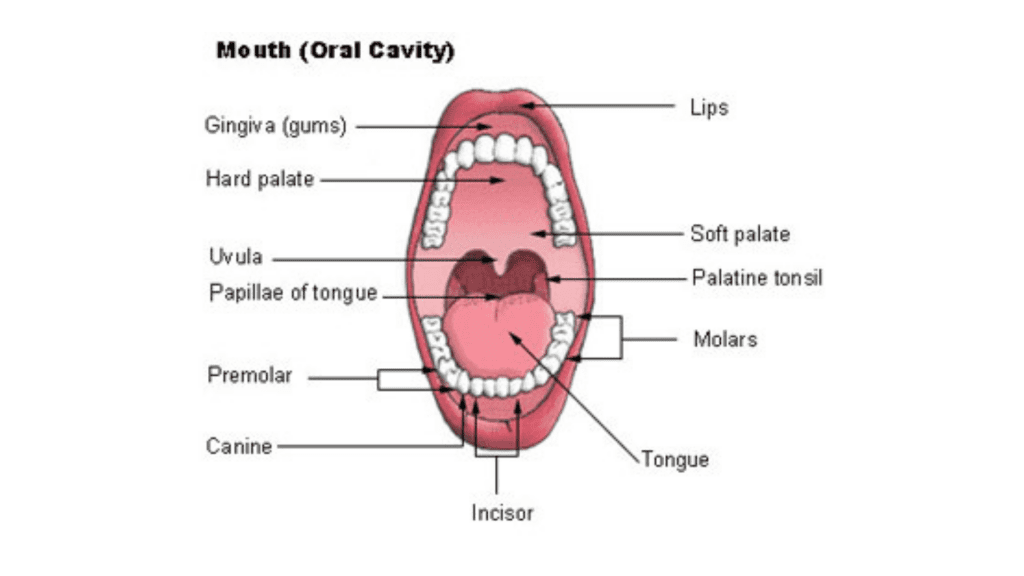
Once you've had leukoplakia, it's possible to get it again in the future. We recommend that you schedule a follow-up appointment with both your primary care physician and your dentist.
Giving up tobacco in any form as well as giving up smoking is one of the most effective ways to prevent leukoplakia. Leukoplakia can be avoided to a large extent by practicing diligent oral hygiene on a regular basis. One more helpful piece of advice is to drink less alcohol and consume a diet that is high in antioxidants.
Oral lichen planus Oral lichen planus is a form of lichen planus that affects the mouth and causes inflammation of the mucous membranes. It is an autoimmune condition. Oral cavity lichen planus is the most common type of lichen planus, but it can affect any mucosal lining, including the lining of the esophagus and the vaginal canal. Oral lichen plus affects only 2% of the population, and the majority of those affected are older women.
The factors that lead to oral lichen planus
There is a school of thought amongst professionals that genetics and immunity could play a part. Some people think lichen planus is caused by an autoimmune disease or a cell-mediated immune response, but others disagree. Oral lichen planus has been linked to the use of beta-blockers and nonsteroidal anti-inflammatory drugs (NSAIDs). These links have been substantiated by medical research.
Symptoms of Oral Lichen Planus Oral lichen planus is characterized by the development of lacy white patches. A burning pain may also be present, along with bleeding gums when eating or brushing teeth, redness, open sores, and swelling. Other symptoms include these. You may also find that foods that are too acidic or too hot bother your stomach.
Oral lichen planus treatments and medications
The symptoms of oral lichen planus can be managed, despite the fact that there is no cure for the condition. Corticosteroids can be taken orally, applied topically, or injected to reduce inflammation. A dentist or doctor can prescribe these medications. You might also be given numbing gels to help reduce any pain that you are experiencing.
In addition, the immune system of some people can be controlled or suppressed through the use of certain medications. You should be aware that oral lichen planus can increase your likelihood of developing secondary infections, nutritional deficiencies, and oral cancer. Checkups at regular intervals are something that people who suffer from oral lichen planus are strongly encouraged to do.
Preventative measures for oral lichen planus patches
You may not be able to completely avoid developing oral lichen planus, but you can reduce your chances of getting it by maintaining a healthy weight with a diet that is high in fruits and vegetables and by cutting back on your consumption of alcohol and tobacco.
Thrush of the Mouth
There is a trace amount of the candida fungus present in the oral cavity, digestive tract, and skin of every human being. These are maintained at a level that is conducive to good health by other bacteria and microorganisms. However, if this delicate equilibrium is upset, you may end up developing oral thrush because the fungus candida grows to unhealthy proportions in your mouth.
The Roots of Oral Candidiasis
Oral thrush, also known as candidiasis, can be caused by an overgrowth of candida and can be brought on by a number of factors, including the use of certain medications, such as antibiotics, birth control pills, and corticosteroids. Oral thrush can also develop in people who are pregnant, have cancer, uncontrolled diabetes, HIV infection, or dry mouth.
It is possible to have an overgrowth of candida if you are a smoker, if your dentures do not fit properly, if you are breastfeeding an infected baby, or if you do not practice good oral hygiene.
Oral thrush has the following symptoms:
White sores that are slightly raised patches and have the appearance of cottage cheese can be one of the symptoms of oral thrush.
It is common for the sores and patches to manifest themselves on the tongue or the inner cheeks, but they can also manifest themselves on the gums, tonsils, roof of the mouth, or the back of the throat.
It's possible that oral thrush will make your mouth feel as though it's full of cotton. At the corner of your mouth, it may cause you to experience irritation, pain, a loss of taste, redness, and cracking or bleeding. Visit your dentist or primary care physician as soon as possible if you observe any of these symptoms.
Treatments Available for Oral Candidiasis
Gargling with salt water, quitting smoking or cutting back on the amount of tobacco you use, reducing the amount of sugar you consume, and using an antibacterial mouthwash are all effective treatments for oral thrush. You may also be given an antifungal medication by your dentist or primary care physician.
Oral thrush may be a symptom of another medical problem; therefore, your dentist may recommend that you discuss any possible underlying health issues with a physician.
Protection Against Oral Thrush
Oral thrush can be avoided with the help of proper oral hygiene to the greatest extent possible.
Make it a habit to brush and floss your teeth every day, clean your dentures at least once per day, and maintain regular dental checkups. After using a corticosteroid inhaler, you should always make sure to rinse your mouth with water before continuing with your day. Rapid treatment is necessary for vaginal yeast infections. Reduce the amount of sugar you consume, and if you have diabetes, pay close attention to maintaining stable blood sugar levels.
Concerned About White Spots on Your Skin?
Do you want to get to the bottom of what's causing the white spots in your mouth once and for all? To get started, call Summerlin Dental Solutions in Summerlin, Nevada today.
CLICK HERE TO SCHEDULE YOUR APPOINTMENT!
GET TO KNOW YOUR BEST DENTIST IN SUMMERLIN
Dr. Marianne Cohan was voted The Best Dentist/ Dental Office and Best Cosmetic Dentist from The Las Vegas Review-Journal in 2020 and 2021. She received her Doctor of Dental Surgery (DDS) from the State University of New York at Buffalo in 1992.

With an emphasis on cosmetic dentistry, complete makeovers, and implant dentistry, Dr. Cohan is committed to continuing education and feels that we never stop learning. Dr. Cohan takes pride in using high-powered magnification to perform minimally invasive restorative dentistry. She uses all the latest technological advances including digital radiography, digital photography, computer simulations, and high-resolution pictures of your proposed treatment on 55-inch screens. She also utilizes CBCT (cone beam) and laser technology.
Dr. Cohan is always available to her patients and is available for any dental emergency.
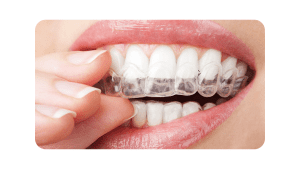 The process of straightening teeth typically comes first in the order of dental procedures because of the length of time it requires. However, extra aesthetic dental care may be performed while the patient is wearing their Invisalign® transparent aligners. These procedures may include the following:
The process of straightening teeth typically comes first in the order of dental procedures because of the length of time it requires. However, extra aesthetic dental care may be performed while the patient is wearing their Invisalign® transparent aligners. These procedures may include the following:
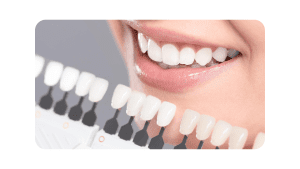 The following steps should be taken in the following order for your cosmetic dental care once the health of your smile has been addressed:
The following steps should be taken in the following order for your cosmetic dental care once the health of your smile has been addressed:
CLICK HERE TO SCHEDULE YOUR APPOINTMENT!
GET TO KNOW YOUR BEST DENTIST IN SUMMERLIN Dr. Marianne Cohan was voted The Best Dentist/ Dental Office and Best Cosmetic Dentist from The Las Vegas Review-Journal in 2020 and 2021. She received her Doctor of Dental Surgery (DDS) from the State University of New York at Buffalo in 1992.
The terms "general dentist" and "cosmetic dentist" are bandied around rather frequently in everyday conversation. You might not be aware that there is a fairly substantial distinction between them due to the fact that they are both referred to as "dentists," even though many dentists perform both services. So, what's the difference between a cosmetic dentist and a general dentist? General dentists perform the essential procedures that are necessary to maintain healthy teeth and gums, whereas cosmetic dentists focus on the appearance of patients' smiles.
What to Look for in a Dentist Who Specializes in Cosmetic Procedures
Choose a cosmetic dentist who concentrates on the attractiveness of your smile if your teeth and gums are in good health but you are still self-conscious about how your smile looks. In this way, you can rest assured that they have a significant amount of experience performing cosmetic dental procedures.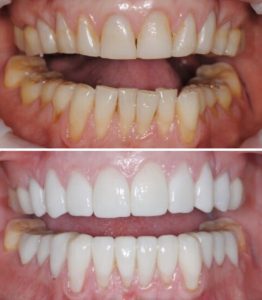 The following are some of the services that a qualified cosmetic dentist will provide in order to give you the smile you have always dreamed of having:
The following are some of the services that a qualified cosmetic dentist will provide in order to give you the smile you have always dreamed of having:
Considerations to Make When Choosing a Family Dentist To reduce the amount of times patients have to be sent to other specialists, a comprehensive general dental practitioner ought to offer a variety of dental specialties. You should read the evaluations on their website to get an idea of their levels of expertise, levels of competence, and backgrounds before hiring them. A comprehensive dental office will employ at least two dentists, each of whom will focus their practice on one of the following areas of dentistry:
A Reputable Cosmetic Dentist in Summerlin Who You Can Trust When looking to improve the appearance of their smile, people who already have an excellent general dentist frequently go to a cosmetic dentist who has a strong reputation in the field. Dr. Marianne Cohan has dental offices in Las Vegas, Nevada, to provide exceptional cosmetic dental care for her patients. New patients are welcome to make an appointment with Dr. Cohan at this time. To schedule an appointment at our dental office in Summerlin, please give us a call now.
CLICK HERE TO SCHEDULE YOUR APPOINTMENT!
GET TO KNOW YOUR BEST DENTIST IN SUMMERLIN
Dr. Marianne Cohan was voted The Best Dentist/ Dental Office and Best Cosmetic Dentist from The Las Vegas Review-Journal in 2020 and 2021. She received her Doctor of Dental Surgery (DDS) from the State University of New York at Buffalo in 1992.

With an emphasis on cosmetic dentistry, complete makeovers, and implant dentistry, Dr. Cohan is committed to continuing education and feels that we never stop learning. Dr. Cohan takes pride in using high-powered magnification to perform minimally invasive restorative dentistry. She uses all the latest technological advances including digital radiography, digital photography, computer simulations, and high-resolution pictures of your proposed treatment on 55-inch screens. She also utilizes CBCT (cone beam) and laser technology.
Dr. Cohan is always available to her patients and is available for any dental emergency.
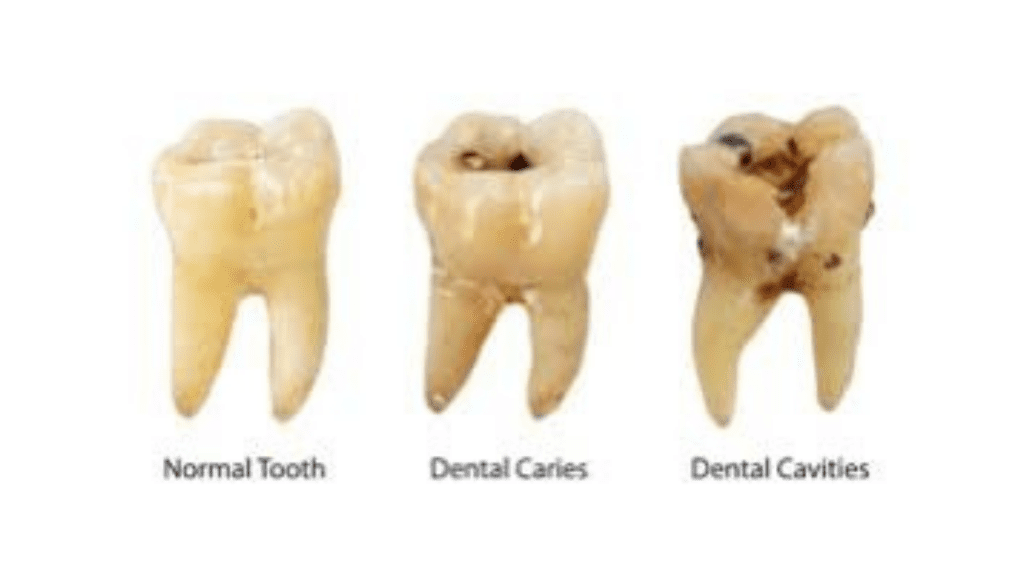
The majority of people will, at some point in their lives, experience tooth decay, which can affect them to a lesser or greater degree depending on the severity of the condition. This is because tooth decay is one of the most common diseases in the world.
If you have pain in a tooth, it's possible that you have a cavity; if this is the case, you should schedule an appointment with a dentist as soon as you can. If the pain persists, you should see a dentist as soon as possible.
What are the Causative Factors Contributing to Tooth Decay?
Plaque is produced when food debris and bacteria accumulate in the mouth and attach themselves to the enamel of the teeth. This process takes place over time. The loss of tooth structure ultimately results from this process. When plaque is not removed, it can eventually turn into an acid that will erode the tooth if the situation is not remedied. Cavities can develop in people who have a genetic predisposition to them, but anyone can get cavities if they don't take care of their teeth. Cavities can also develop in people who have a genetic predisposition to them.
What are the most significant dangers to your health that are brought on by tooth decay?
Decay and cavities in the teeth may appear to be unimportant issues with little sense of urgency; however, if you ignore them for an extended period of time, they can have significant repercussions for your health and could even lead to the need for extractions. The following is a list of some of the more serious risks that are associated with dental decay that has not been treated:
A study that was conducted at the Harvard Medical School discovered a link between untreated cavities in teeth and an increased risk of developing cardiovascular disease.
Despite the fact that practicing good oral hygiene, such as brushing and flossing regularly, can significantly cut the risk of developing cavities, this does not always guarantee that cavities will be prevented entirely.
It is essential for your health that you receive the comprehensive examination that is performed in conjunction with the twice-yearly cleaning and scaling and x-rays that are taken to detect any hidden decay. This examination is performed in conjunction with the cleaning and scaling that takes place every six months. After that, cavities can be filled, or the tooth can be extracted if the decay is too severe to be treated with fillings. Both of these choices are open to consideration.
Dental decay need not be a significant threat to one's health if it is discovered in its early stages and treated with fillings as soon as possible.
You Should Avoid Letting the Decay on Your Teeth Get Any Worse! Now is the time to schedule your appointment with Dr. Cohan, so get on it!
If you are located in Las Vegas, Nevada, or the surrounding area, and you are interested in learning more about the ways in which dental care can improve the quality of your life, give the friendly staff at Summerlin Dental Solutions a call. They will be more than happy to assist you. They are able to provide you with information regarding routine, emergency, and cosmetic dental care, as well as schedule an appointment for you to speak with Dr. Cohan. In addition, they can provide you with information regarding cosmetic dental care. Today, we ask that you either give us a call at the number (702) 341-9160 or use the contact form that is available online.
CLICK HERE TO SCHEDULE YOUR APPOINTMENT!
GET TO KNOW YOUR BEST DENTIST IN SUMMERLIN
Dr. Marianne Cohan was voted The Best Dentist/ Dental Office and Best Cosmetic Dentist from The Las Vegas Review-Journal in 2020 and 2021. She received her Doctor of Dental Surgery (DDS) from the State University of New York at Buffalo in 1992.

With an emphasis on cosmetic dentistry, complete makeovers, and implant dentistry, Dr. Cohan is committed to continuing education and feels that we never stop learning. Dr. Cohan takes pride in using high-powered magnification to perform minimally invasive restorative dentistry. She uses all the latest technological advances including digital radiography, digital photography, computer simulations, and high-resolution pictures of your proposed treatment on 55-inch screens. She also utilizes CBCT (cone beam) and laser technology.
Dr. Cohan is always available to her patients and is available for any dental emergency.

Going to see the dentist at Summerlin Dental Solutions on a regular basis will end up saving you money in the long term.
This is for a variety of reasons, all of which will be discussed in more detail below. However, before we proceed, the most important thing to keep in mind is that this is not only about the money.
Dental problems can have a domino effect on the rest of your body. Researchers are aware of a connection between heart disease and periodontal disease; however, they do not yet have a good understanding of the nature of this association.
People who suffer from periodontal disease have an increased likelihood of developing cardiovascular disease, regardless of whether or not this oral condition is the root cause. It is important to bear in mind the risk factors associated with heart disease because it is the leading cause of death in the United States.
And if you think that the fact that you clean your teeth twice a day exempts you from the dangers of periodontal disease, you should rethink that assumption. Even with careful attention paid to dental hygiene at home on a consistent basis, everyone is susceptible to developing periodontal disease. Periodontal disease affects almost half of all persons over the age of 30, according to some estimates.
Your dentist will be able to detect tooth decay, cavities, and even oral cancer in their earliest stages if you get regular dental exams. If any of these problems are discovered in their early stages, treatment will be far simpler (and cheaper). Let's discuss.
Why maintaining a consistent visit schedule will save you more money in the long term.
Let's talk about the greenbacks now that you have a (very general) understanding of the benefits to your health. In order to receive preventative dental care, you will need to shell out some cash. Because the price of these visits builds up over time, one may wonder whether or not they wind up being less expensive than other types of dental treatment, such as restorative dental care or dental emergencies.
If you never require a restoration or find yourself in a situation requiring immediate attention, then skipping dental visits will save you money. However, how probable is that to occur? If you don't visit the dentist on a regular basis, your odds of avoiding the need for extensive dental repair are fairly low. This is because dental problems can develop slowly over time.
Let's take a look at a few of the reasons why spacing out your appointments over extended periods of time results in a higher overall bill.
1) The charges for cleanings and scaling are based on the amount of time spent: More tartar buildup equals more time spent cleaning.
The expert cleaning that the dentist performs is going to take up a significant portion of your appointment. Plaque is a sticky substance that grows on your teeth as a result of the food that you eat. The majority of this can be removed when you brush your teeth (provided that you do it in the correct manner). On the other hand, if there are any particles of plaque stuck between your teeth, over time this will eventually harden into tartar, which is extremely difficult to remove with a toothbrush.
Both of these substances provide an environment in which bacteria can thrive and multiply close to the teeth.
Plaque and tartar will be removed from your teeth in a careful and thorough manner by your dentist or dental hygienist, including from any locations that are difficult to access. The length of time needed to do this task is typically determined by how unclean your teeth are. When there is a greater accumulation of plaque and tartar, cleaning them takes significantly more time. Naturally, the lengthier the dentist session, the greater the cost of the service will be.
2) Your insurance, most likely, includes yearly minimums that must be met in order to continue coverage.
You should also take into consideration the details of your dental insurance plan. The majority of people have access to dental insurance through their place of employment. If you happen to be one of the lucky ones, you should surely make the most of this opportunity.
There are a few key operational differences between standard health insurance and dental insurance. Its primary function is not to be ready to pay the exorbitant medical bills that result from a serious accident or injury; rather, it is to pay for routine preventative treatment. Your plan may compel you to reach certain minimum charges during the year in order to encourage you to visit their establishments. To put it another way, maintaining a regular schedule for your dental checkups will be to your financial advantage.
3) It is essential to detect degradation at an early stage.
One of the reasons some people avoid going to the dentist is due to the dread of being in agony or feeling discomfort there. Dentists, on the other hand, do all in their power to alleviate their patients' discomfort and cut down on the amount of pain they feel. In point of fact, thanks to advancements in dental technology such as local anaesthetic and sedation, the majority of patients have very little discomfort during their procedures.
Having said that, larger cavities and more severe issues will still result in higher costs and greater levels of discomfort. Consider the difference in price between getting a filling and having a root canal done as an illustration.
Dental fillings are a common and routine operation. They are typically able to be performed on the spot, requiring only a brief injection of local anesthesia, and do not incur a significant cost. When you have slight dental decay that has hollowed out a hole in one of your teeth, your dentist will place a filling (after cleaning out and disinfecting the tooth that was impacted). This will be done after the tooth has been cleaned out.
Depending on the extent of the damage, a filling might cost anywhere from $150 to $350 on average.
If, on the other hand, your dentist does not have the opportunity to fill that cavity, the decay of your tooth will continue until the infection reaches the pulp, which is a soft tissue located inside your tooth. If you haven't already, you will almost certainly get a toothache or experience pain at this time, and you will have no choice but to get a root canal.
How much will it set you back to purchase that? You could wind up paying anything from $600 to $1,400 for a single tooth, depending on the market and the kind of tooth you need (molars have more roots and thus are more expensive).
4) Routine dental cleanings prevent the buildup of tartar and plaque, two factors that contribute to more severe forms of gum disease.
It is important to keep in mind that the accumulation of more plaque and tartar in a longer period of time between visits to the dentist is not the only issue to consider. Even if you only have a small amount, the longer plaque and tartar are allowed to remain on your teeth, the more time the bacteria have to create damage, and the deeper it is able to penetrate your teeth.
The situation is just going to get worse as time goes on since it is only getting deeper and more entrenched. When this happens, you will start having significant issues with your teeth. To completely repair your smile, you might even need to have some of your teeth extracted and replaced with dental restorations.
The surface of your teeth does not contain any nerves at all. Toothaches and other forms of dental pain are normally only experienced if the problem has progressed to the point where it is affecting the soft pulp located in the core of the tooth, which is where the nerves are located. That is to say, if you wait until you feel it, it may already be too late to save the tooth, thus you should not wait until you feel it.
5) Preventative medical care is less difficult and more affordable to carry out.
Regular trips to the dentist are not too expensive, particularly if you have dental insurance. If all that is required of you is a speedy cleaning, a visual inspection, and perhaps a set of dental x-rays, you can expect to be in and out of the clinic in under an hour for the cost of a copay. If you have any questions or concerns, please do not hesitate to contact our office.
If, on the other hand, you require a root canal or restoration, you should plan on several visits and care that is significantly more complex. That translates into dollar signs that are going up as well. According to the findings of a study conducted by the health insurance company Cigna, individuals who did not receive preventative dental treatment had dental costs that were 43 percent greater.
When should I next make an appointment with the dentist?
The majority of patients benefit best from seeing their doctor once every six months. Because of the unique factors affecting their oral health, certain individuals might require more frequent trips to the dentist than others. When you have located a dentist, make it a point to inquire about the frequency with which they advise patients to schedule checkups.
How much does it cost to have a checkup at the dentist?
It's possible that you've overheard some individuals griping about how expensive dental treatment is. It's possible that this is the reason you've put off going to the dentist for such a long time. On the other hand, it's highly improbable that they are upset about the price of a routine dentist appointment.
Depending on the specifics of the market in which you live, the price of a dental checkup might range anywhere from $20 (with insurance) to $500. On the other hand, any service that requires more than just a basic filling or cleaning may easily cost several thousand dollars. For instance, the price of an extraction can range anywhere from $220 to $4,000, and the price of a crown might be anywhere from $500 to $3,000. Dental implants can replace individual missing teeth for a cost ranging from $3,500 to $4,000 per implant.
With just these examples, it is easy to see how the price of these more significant dental procedures far outweigh those of preventative care.
CLICK HERE TO SCHEDULE YOUR APPOINTMENT!
Dr. Marianne Cohan was voted The Best Dentist/ Dental Office and Best Cosmetic Dentist from The Las Vegas Review-Journal in 2020 and 2021. She received her Doctor of Dental Surgery (DDS) from the State University of New York at Buffalo in 1992.

With an emphasis on cosmetic dentistry, complete makeovers, and implant dentistry, Dr. Cohan is committed to continuing education and feels that we never stop learning. Dr. Cohan takes pride in using high-powered magnification to perform minimally invasive restorative dentistry. She uses all the latest technological advances including digital radiography, digital photography, computer simulations, and high-resolution pictures of your proposed treatment on 55-inch screens. She also utilizes CBCT (cone beam) and laser technology.
Dr. Cohan is always available to her patients and is available for any dental emergency.
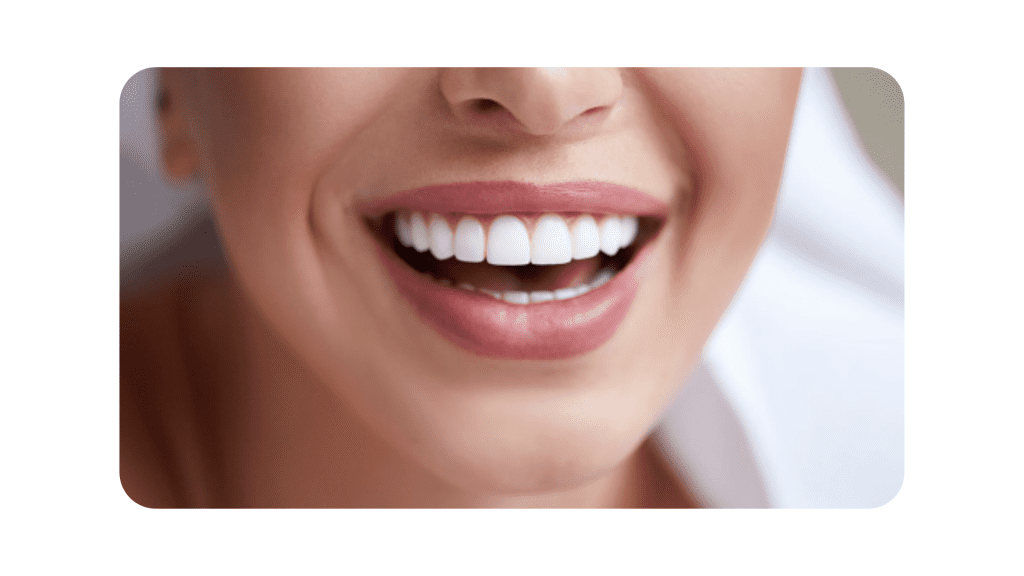
It's possible that going to the dentist on a regular basis is the most effective way to acquire a dazzlingly white smile.
Read this article to find out why going to the dentist twice a year is beneficial to maintaining the appearance of your smile at its finest.
Many people in today's society are developing an unhealthy fixation on the idea that they should have a smile as white as the teeth of movie stars. People who have teeth that are whiter are thought to have higher attractiveness, because it is associated with youth and prosperity (regardless of actual circumstances). Having white teeth is a nice aim to aspire towards, but having healthy teeth is much more eye-catching than having white teeth.
The great majority of people are already aware of the fact that going to the dentist on a routine basis may be of tremendous assistance in the upkeep of a healthy smile. On the other hand, you might be curious to learn if maintaining your current dental routine can help you obtain a whiter smile. This is something you should look into. Let's investigate.
Is it true that having white teeth indicates good dental health when you smile?
Let's begin with this question: is a gleaming smile the same thing as a chuckling grin? It is common knowledge that having white teeth is an indication of good oral health, and to some degree, this is correct. After all, a person who routinely cares for their teeth by flossing, brushing, and otherwise maintaining good oral hygiene should have teeth that are noticeably whiter when they smile.
On the other hand, it is not at all impossible to have a smile that is both healthy and white at the same time.
Our teeth do not normally have the dazzlingly white appearance that so many of us seek or that is portrayed in the media. This is because our teeth develop over the course of our lives. The layer of our teeth that is the most exposed is called enamel, and it has a bluish-transparent appearance. The dentine, which has a yellowish colour, can be found beneath the enamel of the tooth. When put together, they create the impression of having teeth that are white.
The tooth enamel progressively wears away as we become older, exposing more of the yellow dentin that lies beneath it and creating the appearance of teeth that are more yellow than they actually are. However, there is still a chance that the teeth are in exceptionally healthy condition.
Why getting your teeth cleaned by a professional on a consistent basis is necessary in order to keep your smile bright white.
In addition, if you frequently consume foods and beverages that are dark in color, this may cause stains to appear on your teeth. The worst offenders include beverages such as coffee, tea, tomato sauce, and dark-colored sugary drinks. Other culprits include tomato paste.
A professional teeth cleaning, on the other hand, may be able to remove some of these stains from your tooth enamel. [Cleanings] [Cleanings] [Cleanings] [Cleanings] [Cle In addition to this, they will scrape away any tartar or plaque that has accumulated on your teeth. This is significant because the aforementioned compounds provide a breeding ground for the pathogenic germs that lead to tooth decay, gum disease, and a variety of other dental issues.
When should you have your teeth cleaned by a professional and how often should you do it yourself?
People should try to get their teeth professionally cleaned at least twice a year, according to the recommendations of the majority of dentists. The American Dental Association would like to bring to our attention the fact that not everyone has the same level of oral health and that individuals should follow the recommendations that are provided by their dentist in order to maintain the best possible oral health for themselves. In order to maintain the highest possible level of health, it may be necessary for individuals who struggle with particular dental disorders to arrange more frequent appointments to the dentist.
Oral illnesses have the potential to worsen over time, which could result in changes to the appearance of your smile as well as your breath.
What are the consequences if you do not place a high focus on having a dental professional clean your teeth? People who use high-tech electric toothbrushes frequently have the misconception that simply brushing and flossing their teeth is sufficient to maintain good oral hygiene.
It is essential to bear in mind that going to the dentist entails more than simply getting your teeth cleaned. There are a variety of other procedures that may be performed. Your dentist will examine the interior of your mouth for any signs of tooth decay, gum disease, or any other concerns that may be affecting your oral health. This examination will take place in addition to a screening for oral cancer.
It's possible that your oral health will decrease over time. Cavities can develop to be pretty significant in size before you realize they are there, and if you have foul breath, you might be turning people away without you realizing it. If you put off going to the dentist, there is a chance that you could end up damaging your teeth to the point where some of them fall out or that you could lose a tooth entirely.
Make an appointment with a dentist near me as soon as possible in your area to prevent these uncomfortable problems from occurring.
Why maintaining a schedule of regular visits is of the utmost significance?
The roots of your teeth are home to the nerves that may be found in your teeth. Because the layers of your tooth surround this sensitive inner, dental problems that manifest themselves on the surface of your teeth may persist for some time without causing you any discomfort. Before you ever become aware that there is an issue, the infection has already spread all the way through to the pulp inside of your tooth.
Dentists, on the other hand, may be able to identify these issues long before you experience any pain associated with them. Because of this, finding a solution to the problem is much simpler, and as a result, the likelihood of losing a tooth as a consequence of it is much reduced.
It is possible for dentists to whiten the teeth of their patients.
At the absolute least, if you want to improve the appearance of your smile, you should think about scheduling an appointment with a dentist. If you get your teeth professionally cleaned on a regular basis, you may be able to remove some of the stains that are caused by the foods and beverages you consume.
In addition, the advancement of technology has provided dentists with sophisticated tools that can whiten your teeth in a manner that is both safe and expedient.
After having your teeth whitened professionally at the dentist's office after just one visit, your teeth may be many shades whiter than they were before. Alternately, your dental practitioner may give you a high-quality tooth whitening kit that you can use in the comfort of your own home whenever it is most convenient for you. Within a few weeks, you should be able to experience visibly brighter teeth if you use the product correctly and exactly in accordance with the instructions. This should be possible if you use the product correctly and exactly in accordance with the instructions.
Are you ready to experience a smile that is brighter and whiter?
It is imperative that you practice proper dental hygiene because doing so will benefit you in a variety of ways. Gum disease and cardiovascular disease have been shown to be connected, and it is likely that gum disease also has other systemic impacts on the body.
Regular trips to the dentist are one of the most effective weapons you can employ in the fight against unhealthy teeth, which are usually discolored.
CLICK HERE TO SCHEDULE YOUR APPOINTMENT!
Dr. Marianne Cohan was voted The Best Dentist/ Dental Office and Best Cosmetic Dentist from The Las Vegas Review-Journal in 2020 and 2021. She received her Doctor of Dental Surgery (DDS) from the State University of New York at Buffalo in 1992.

With an emphasis on cosmetic dentistry, complete makeovers, and implant dentistry, Dr. Cohan is committed to continuing education and feels that we never stop learning. Dr. Cohan takes pride in using high-powered magnification to perform minimally invasive restorative dentistry. She uses all the latest technological advances including digital radiography, digital photography, computer simulations, and high-resolution pictures of your proposed treatment on 55-inch screens. She also utilizes CBCT (cone beam) and laser technology.
Dr. Cohan is always available to her patients and is available for any dental emergency.
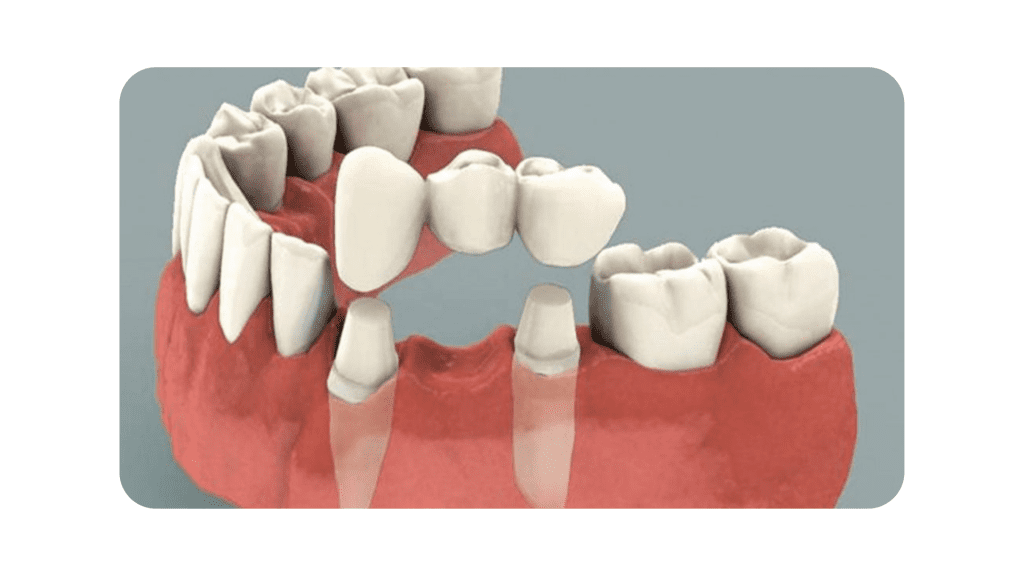
My tooth is missing and I need a dental bridge. How can I bridge the gap? Implant? Bridge? Let's look at your possibilities.
Surprisingly often, dental problems can range from a persistent toothache to cavities to the entire loss of a permanent tooth. No matter what issue you are having with your dental health, there is a dentist out there who can help.
One dental operation for which people visit their dentist on a somewhat regular basis is a dental bridge. If you are unfamiliar with this piece of equipment, that is very understandable. The majority of people are only familiar with the simpler procedures in dentistry, such scaling and fillings.
On the other side, bridges play a critical role in helping people who are missing teeth regain their oral health. They are often used in the field of restorative dentistry to address a range of potential problems.
The following page will provide all the details you need about dental bridges, including the many types, advantages, remedies, and costs.
One type of prosthetic that can be used to replace a missing tooth or set of teeth is a dental bridge. Bridges are frequently made of ceramic or porcelain. When it comes to how they carry out their functions, bridges are fundamentally different from dental implants, which also insert artificial roots into the gum.
It is customary to use one of the teeth on either side of the gap left by the lost tooth or teeth while building a bridge. The technique of fastening the bridge in place makes use of these teeth that are close to the gap. To "bridge" the gap left by the missing teeth and aid in their closure, a prosthetic tooth is placed there.
It is standard procedure to file down the adjacent teeth until they can support a dental crown. Dental crowns are specialist caps that dentists place over teeth to restore them to their original function after they have been chipped or filed down. They are constructed of material of the highest medical grade. The crown that fills in the space left by the missing tooth will also function as a bridge, albeit it may be noticeably broader or deeper than the crowns that join the adjacent teeth.
Why do I need a dental bridge in this circumstance?
For a variety of reasons, including the following, if you have lost teeth, a dental bridge may be beneficial for you:
• Ever since you lost that tooth, have you been unable to smile? Do not worry; a dental bridge can assist in restoring the situation to its original state.
Dental bridges can help prevent the spread of an infection to your exposed gums.
• Losing teeth makes it difficult to chew food, but dental bridges can help you regain that ability.
Since missing teeth can occasionally affect how the gums and jaw develop, it's critical to replace them as soon as possible. It is crucial to replace any missing teeth as a result.
What various types of dental bridges are there?
Since bridges are a successful treatment for a variety of dental problems, dentists have created a broad variety of unique bridge types to help address various dental conditions, including the following:
• The Traditional Fixed Bridge: When restoring lost teeth, this style of bridge is most usually employed. When utilizing this technique, the teeth that are close to the gap left by the missing tooth are covered with crowns. On either side of the opening are these teeth. The gap is filled with a filler tooth, which is secured in place with complementing crowns. These kinds of bridges are frequently made of porcelain that has been fused to a metal or ceramic object. When two healthy teeth are present on either side of the missing tooth, this surgery works well. But each of these teeth will require some reduction work in order for them to successfully support new crowns.
• Cantilever Bridge: When one of the neighboring teeth needed to support a second new crown has been lost, a cantilever bridge is used. A total of two artificial crowns are implanted within the patient's mouth, as opposed to the standard three crowns used in a fixed bridge.
• Resin-Bonded Bridges: Resin-bonded bridges are another term for Maryland Bonded Bridges, which are dental restorations used to replace missing front teeth. This technique is used to anchor a pontic to healthy teeth that are nearby. The recently implanted artificial tooth's position is maintained with the help of this tactic. It doesn't involve shaping or filing the teeth next to the damaged tooth.
What is the process for placing a dental bridge?
• Placing a dental bridge is a relatively straightforward procedure that usually only needs one or two trips to the dentist's office to be completed. The exposed gum and the area just around it will first be cleaned by the dentist. The neighboring teeth that are pertinent will then be filed down, and the area will then be disinfected once more. The teeth are then slightly reshaped so that an artificial crown can be supported. After this, a mold is created in order to construct the bridge. Dentists frequently provide their patients temporary bridges to wear while they await the preparation of their permanent bridges.
Your dentist will next finish by using a specific dental adhesive to attach the bridge to the teeth. Dentists must decide whether to use a dental implant as the anchor for a bridge for each individual patient. But in other circumstances, it might be the wisest choice.
How much does getting a dental bridge cost?
Dental care is never inexpensive. A standard or cantilever bridge might run you anywhere from $1,500 to $5,000 to build. A bridge in Maryland costs between $1500 and $2500 to build. Budget between $4,000 and $15,000 for the treatment if you choose to have a bridge supported by implants.
The good news is that having dental insurance can significantly reduce the costs associated with these procedures by as much as 50%. As a result, the maximum cost for a traditional or cantilever bridge drops to $2,500, while the costs for a Maryland bridge and implant-supported bridge rise to $1,250 and $7,500, respectively.
Depending on the circumstances, a different sum of money may be required to cover the cost of the procedure.
What is the lifespan of a dental bridge?
The lifespan of a dental bridge is typically between 10 and 15 years; however, depending on how well the patient takes care of their original teeth, this number may be increased or decreased. The bridge could begin to deteriorate in as short as five to seven years, though, if you neglect it and abuse it violently.
You may extend the life of dental bridges by brushing your teeth twice daily. Dental practitioners frequently recommend silica-containing toothpaste as it is their preferred brand. You should floss your teeth as well. Avoiding foods and beverages that are high in sugar or acid is advised if you wish to maintain the health of your bridge.
What are the potential drawbacks of using dental bridges?
Dental bridges are effective; the installation process is made painless by the use of an anesthetic, and the actual installation process can be finished in a fair amount of time. There might, however, be a few issues with this procedure. Here is a summary of some typical potential issues that could occur with dental bridges:
• The teeth next to the space left by a missing tooth are typically filed down in order to aid in supporting a new crown. Teeth that are generally in excellent health are altered by this. • Dental bridges are more prone to produce infections than implants or fillings because of their intricate structure, which makes them difficult to keep clean. • You must file down the teeth next to the gap in order to obtain a traditional or cantilever bridge. On the other hand, if you follow strict hygiene guidelines, you shouldn't experience any problems.
• Every ten to fifteen years, bridges should be modernized.
You should give the issues mentioned above careful thought before deciding to acquire a dental bridge. There are many benefits to building a bridge, but there are certain negatives as well that must be overlooked. As a result, many people consider other solutions, with implants being the most popular choice.
Implants or bridges? The query is that.
The decision of whether to acquire bridges or implants has been highly contested for a very long time.
Generally speaking, implants last longer than bridges. Contrary to bridges, which often only endure between 10 and 15 years, they can typically offer you protection for the duration of your life. Along with this advantage, implants are known to support strong jawbones. This is due to the fact that they are entirely attached within your gum as compared to regular veneers, which are only placed over raw gum tissue. The existence of implants won't put your jaw's mechanics at risk; they'll continue to function as they always have.
Dental bridges are significantly more likely to become infected than implants are. In order to help you keep a clean and healthy bridge, your dentist may suggest additional dental care procedures. It can be challenging to brush and floss around the false crowns. Your bridge will remain in good shape if you do this.
On the other hand, if you consistently use toothpaste to brush your teeth, visit the dentist for checkups, and floss your teeth in the proper places, your bridge will surely continue to be infection-free.
Because there are several advantages to having implants instead of bridges, people frequently opt for this procedure. In spite of the fact that patients have the option of having implants, bridges are still the most common and commonly used method of tooth replacement.
The single most significant argument that can be made in favor of this result is the price. Getting a bridge is substantially less expensive than getting an implant. Implants may need for additional procedures like grafting or a sinus lift, all of which raise the overall cost of the procedure.
These extra procedures do not need to be finished for bridges. The strength of the gums or the density of the jawbone are trivial and can be easily disregarded concerns. Additionally, no type of surgical treatment is required for the placement of a bridge.
Finding a dentist as soon as possible and scheduling an appointment for a dental bridge is your best option if money is tight or you'd prefer to avoid invasive surgical procedures.
Several final thoughts
As is evident, there is a wide variety of bridge types to choose from. To help you select the solution that is best for you, you should review your options with a qualified dentist. Before committing to a specific appointment time, be sure to carefully consider all of your possibilities.
Making a dentist appointment can be a challenging and time-consuming task, especially if you're in a rush and don't know where to hunt for a trustworthy dentist in your region. But once you organize the specifics of your visit, you'll be happy you did.
Never put off getting dental work done, especially if it's something as significant as mending a bridge. If you take the necessary steps to care for your teeth, you can quickly make them pain-free.
CLICK HERE TO SCHEDULE YOUR APPOINTMENT!
GET TO KNOW YOUR BEST DENTIST IN SUMMERLIN
Dr. Marianne Cohan was voted The Best Dentist/ Dental Office and Best Cosmetic Dentist from The Las Vegas Review-Journal in 2020 and 2021. She received her Doctor of Dental Surgery (DDS) from the State University of New York at Buffalo in 1992.

With an emphasis on cosmetic dentistry, complete makeovers, and implant dentistry, Dr. Cohan is committed to continuing education and feels that we never stop learning. Dr. Cohan takes pride in using high-powered magnification to perform minimally invasive restorative dentistry. She uses all the latest technological advances including digital radiography, digital photography, computer simulations, and high-resolution pictures of your proposed treatment on 55-inch screens. She also utilizes CBCT (cone beam) and laser technology.
Dr. Cohan is always available to her patients and is available for any dental emergency.

Do you put off visiting to the dentist because you don't believe that keeping your oral health is as important as other aspects of your overall health?
It's possible that the strong connection between dental health and general health and wellness will come as a surprise to you.
It is common knowledge that it is vital to maintain good oral health and make routine trips to the dentist in order to avoid toothaches, cavities, poor breath, and other dental problems. However, not taking proper care of your teeth can also have an effect on your general physical health, increasing your risk of developing cardiovascular disease as well as other difficulties.
It is essential to have a solid understanding of the connections between oral health and overall wellness, as well as the ways in which the two can influence and contribute to one another. Continue reading for information about the various physical disorders that are linked to dental health, as well as the steps you may take to prevent adverse effects.
When bacteria from your mouth make their way into your bloodstream, it can have an effect on your entire health and wellness, which is why maintaining good oral health and hygiene is so important.
In most cases, natural defenses that have been set up by your body are able to prevent bacteria from invading certain systems. On the other hand, if you do not maintain good dental hygiene, the bacteria that accumulates in your mouth has a chance of getting into your bloodstream and spreading throughout your body.
Tooth decay and gum disease are both conditions that can be caused by bacteria found inside of your mouth. According to the findings of several studies, periodontal disease may also be associated with bacterial pneumonia and cardiovascular disease. Therefore, paying attention to the hygiene of your mouth can prevent bacteria from infiltrating the rest of your body, which can in turn protect you from a variety of potentially serious health conditions.
Regular dental checkups can benefit not only your oral health but also your overall health.
Which medical conditions are linked to oral health issues?
Poor dental health and wellness have been linked to the following illnesses:
Oral bacteria, which has been connected to cardiovascular disease, can induce inflammation. This may raise the risk of coronary artery disease, stroke, and cardiovascular disease.
• Endocarditis: If you don't maintain good oral hygiene, bacteria from your mouth could enter your bloodstream and attach themselves to different parts of your heart. This condition can occur when you don't properly care for your teeth and gums. Because of this, an infection will develop in the valves that are located inside of your heart.
• Birth issues Periodontitis is a known factor in the development of birth complications during pregnancy, including the delivery of a baby who is premature. In addition, the treatment of periodontal disease can lessen the requirement for insulin in patients with diabetes.
• Cancer: Poor oral hygiene has been linked to a number of cancers, including leukemia and oral cancer.
• Pneumonia: In the same way that bacteria can get into your heart, they may also get into your lungs, which can lead to pneumonia and other respiratory problems.
Which conditions have the potential to impact your oral health?
Oral health can play a role in the development of certain health issues, and some health conditions can play a role in oral health. Examples of medical conditions that may affect your dental health include the following:
• Diabetes: Gum disease is more likely to affect people with diabetes. A person with diabetes has a reduced immune system, which increases their susceptibility to disease. Gum disease patients have a more difficult time managing their blood sugar levels, which can be improved with appropriate periodontal care.• Alzheimer's disease: As Alzheimer's disease advances, it is possible for patients to experience deterioration in their oral health.
• HIV/AIDS: Individuals who have HIV or Aids are more prone to suffer from oral problems, such as mucosal sores.
• Osteoporosis: This condition occurs when your bones become fragile or weak, which can lead to issues with your dental health such as tooth loss and bone loss in the jaw. There is a possibility that people taking medication for osteoporosis would experience harm to their jawbones.
What can I do to safeguard the health of my mouth?
Maintaining good oral hygiene, being aware of the warning signs of gum disease, and scheduling routine checkups with a dentist in your area are the three most important things you can do to promote both your oral and overall health.
• Make sure you brush your teeth at least twice a day: The most fundamental step you can do to safeguard your oral health is to brush your teeth with fluoride toothpaste twice day. Keeping up with this technique will enable the defense mechanisms in your body to operate effectively, thereby keeping bacteria from entering your system.
• Try to eat healthily as much as you can because the food you consume can have an effect on the condition of your teeth. You should eat in a way that is both healthy and balanced. You should also stay away from foods that contain an excessive amount of sugar.
• Floss your teeth every day. Daily flossing has a number of important benefits for your oral health. Inflammation can be reduced by cleaning the spaces between your teeth, which can also help eliminate bacteria-filled plaque.
• Schedule checkups and regular appointments with your dentist: When you go to the dentist on a regular basis, they are able to monitor your oral health and take preventative measures against gum disease and tooth decay before they cause any significant damage. At the very least, you should visit the dentist twice every year.
• Refrain from using any form of tobacco: The lungs and gums are particularly vulnerable to the harmful effects of tobacco use. Stay away from cigarettes and tobacco if you want to keep your dental and overall health in good shape.
• Change your toothbrush at least once every three to four months If you want to maintain good oral health and cleanliness, you should change your toothbrush at least once every three to four months.
Aside from practicing basic dental hygiene, it is also important to be on the lookout for the signs and symptoms of gum disease. If you observe any symptoms, you should visit a dentist as soon as possible and take the necessary precautions.
Signs that indicate gum disease:
Maintaining good oral hygiene on a regular basis and being aware of the warning signs of gum disease are both important things to do if you want to stay healthy.
Observations and conclusions
Maintaining good dental health can affect one's overall health since oral bacteria can enter the bloodstream and other bodily systems. Poor oral hygiene has been related to a higher risk of illnesses like endocarditis, cardiovascular disease, and complications during childbirth.
CLICK HERE TO SCHEDULE YOUR APPOINTMENT!
GET TO KNOW YOUR BEST DENTIST IN SUMMERLIN
Dr. Marianne Cohan was voted The Best Dentist/ Dental Office and Best Cosmetic Dentist from The Las Vegas Review-Journal in 2020 and 2021. She received her Doctor of Dental Surgery (DDS) from the State University of New York at Buffalo in 1992.

With an emphasis on cosmetic dentistry, complete makeovers, and implant dentistry, Dr. Cohan is committed to continuing education and feels that we never stop learning. Dr. Cohan takes pride in using high-powered magnification to perform minimally invasive restorative dentistry. She uses all the latest technological advances including digital radiography, digital photography, computer simulations, and high-resolution pictures of your proposed treatment on 55-inch screens. She also utilizes CBCT (cone beam) and laser technology.
Dr. Cohan is always available to her patients and is available for any dental emergency.
Teeth filing at home? The COVID-19 Pandemic caused an extreme rise in people turning to at-home procedures in order to stay safely in the comfort of their home. One of these at-home procedures became a TikTok trend. TikTok and at-home teeth filing: is it safe? Let’s discuss.
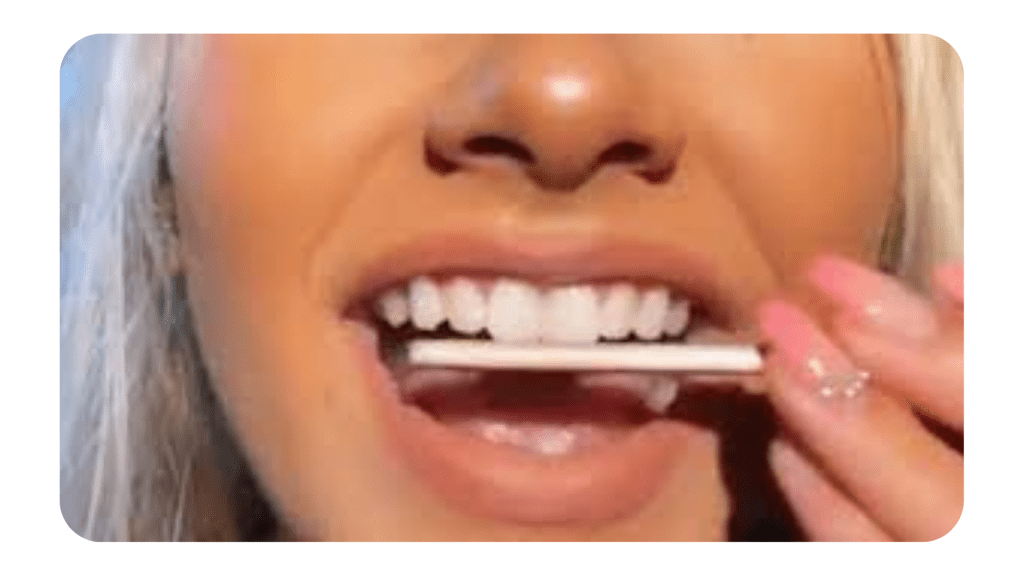
When considering whether or not to file your teeth at home, it's important to consider the benefits, drawbacks, and any health risks.
Filing teeth is known in the dental field as enameloplasty. This process calls for the careful removal of a negligible amount of enamel from the teeth's outer surface. Dentists with the skills and training to use a sanding tool, laser, or other piece of equipment to alter the sides or surface of a patient's teeth do the procedure, which is also known as teeth shaving or recontouring.
Benefits, costs, and risks linked with tooth filing, as well as the newest TikTok trends, will all be covered in this article.
As for the benefits, or explanations for its popularity, teeth contouring:
There are several situations in which improving one's smile by changing its appearance might be a positive move. A few flaws in your smile could be something you'd like to see improved. Your bite may be crooked, your molars may have rough spots, and you may have issues with the length, smoothness, or shape of individual teeth.
Dental filing is a popular method of corrective dentistry for both medical and cosmetic reasons.
Tooth contouring (filing) has various medical benefits, including a decreased incidence of tooth decay due to the elimination of tiny overlaps between teeth. Tooth contouring helps even out your bite, which can prevent or alleviate jaw pain, and is a necessary step in preparing your teeth for a crown (following a root canal).
The cosmetic advantages of teeth filing include a more attractive smile with fewer faults, increased assurance in one's appearance, an inexpensive solution to minor dental repairs or uneven teeth, and a boost in one's confidence.
Several factors, including health and aesthetics, contribute to the widespread practice of tooth filing. You may be a good candidate for this inexpensive smile makeover if you have a single tooth that is significantly larger than the others or is crooked you would consider filing. Getting your teeth whitened by a cosmetic dentist is as easy as snapping a photo and sending it over.
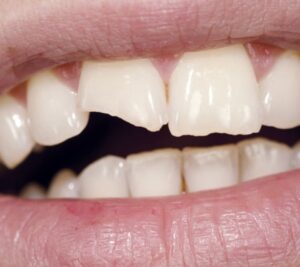
To change the shape of a tooth, a dentist will file it down. This technique has a low potential for complications.
Concerns center on the risk of enamel erosion, which can result in tooth damage. The softer dentin layer and the dental nerve are protected by this hard outer layer of the tooth. The protective properties of enamel make it effective in warding off tooth decay and illness, medically known as caries.
Regrettably, this hardworking layer does not naturally regenerate. Once tooth enamel has been gone, it cannot be replaced. It's possible that issues like:
• heightened tooth sensitivity and pain would arise if too much enamel was lost
• teeth that are more prone to breaking;
• an increased risk of developing cavities.
It is crucial that a qualified professional who is familiar with the nature of tooth enamel and its sensitivity to damage perform this sensitive procedure.
It's becoming increasingly common, but potentially dangerous, for people to self-fillet their teeth using a nail file.
Dentists and orthodontists all around the United States are reeling from the current viral craze of DIY teeth filing with nail files. Without proper training, these people attempting filingmight use the wrong files to even out any bumps or irregularities in their teeth, which could have a negative impact on their oral health.
Experts in the dental field are speaking out against the trend on TikTok.
Incorrect tooth filing, according to the American Association of Orthodontists, can permanently alter a person's teeth and smile. Once the enamel that protects your teeth is worn away, you will never be able to get it back.
Without enamel protection, teeth become more vulnerable to sensitivity and even possible extraction. And this is especially true if the tooth was weak to begin with.
Even popular TikTok users have expressed shame at having their teeth shaved in public, pleading with their fans not to follow in their footsteps and become "DIY dentists."
Any time you're thinking of altering the appearance of your teeth, whether for cosmetic or functional reasons, it's a good idea to consult with a dentist first.
Fillings in teeth: frequently asked questions
While considering your options for dental care, you may be wondering if tooth contouring should be a part of your treatment.
Some answers to frequently asked questions about enameloplasty are provided here.
When obtaining braces or clear aligners, why is this surgery done first?
Shaving or otherwise shaping the patient's teeth before placing braces on them or utilizing a clear aligner system like Invisalign for orthodontic purposes is standard practice. In order to provide more space in your mouth for your teeth, your dentist or orthodontist may remove a small amount of enamel from your teeth.
With even a little bit of space to move, your teeth will be able to straighten and align themselves more easily with braces or a clear aligner.
Do you experience any pain during a tooth filling?
To answer your question directly: no. Your dentist won't be touching the sensitive dentin or the gum line while they work on your teeth because there are no nerve endings in the enamel. Also, you usually won't need any form of anaesthetic for filing your teeth, and the danger of side effects is negligible.
What is the going rate for having a tooth filed down?
Thankfully, having your teeth reshaped requires nothing more than your dentist's time, skill, and high-tech tools. This means it's a lot more cost-effective than alternatives, like as installing costly implants or performing extensive surgery, for enhancing one's smile's appearance.
The final cost of tooth contouring will depend on the extent of the necessary treatment and will vary greatly from one dental specialist to the next. Budget an average of $50 to $300 per tooth for dental work.
Does dental insurance pay for fillings?
Most dental insurance plans won't cover the cost of filling cavities unless it's medically essential due to an injury. Find out what policies your insurer offers and whether or not you qualify for coverage by getting in touch with them.
How much of the tooth's enamel is ground down?
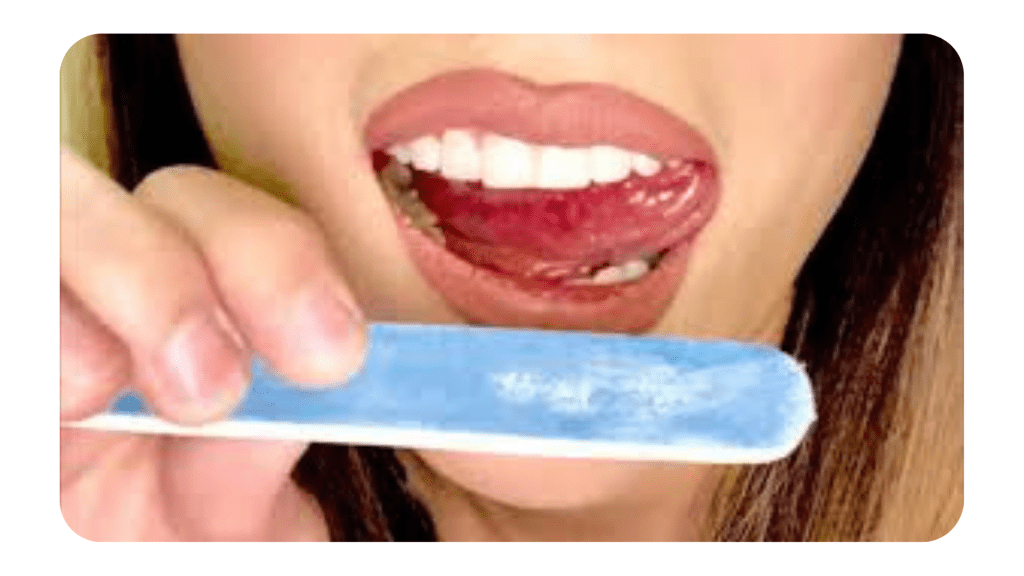
Thanks to modern dental technology, your dentist can precisely calculate how much enamel needs to be trimmed off your teeth. Dentists typically remove between 0.2 and 0.5 mm of enamel from each tooth, however the actual amount will vary depending on the patient's goals and the tooth's unique structure.
If you're worried about the extent to which your enamel will be reshaped, it's best to discuss your concerns with your dentist before the operation begins. They'll have the information needed to provide a thorough explanation and make any necessary revisions.
What preventative measures against COVID-19 are required?
Fortunately, because to the evolution of medical practices over time, the dental industry is ready for the pandemic. Having any sort of dental procedure done, from teeth bleaching to tartar removal, tooth contouring, or a fundamental set of x-rays, should put your mind at ease, since there are established protocols in place to guarantee your safety.
If you feel better at peace knowing what specific measures your dentist will take to ensure your health during the pandemic, it may be helpful to discuss this with them in advance. You'll be better equipped to handle whatever comes your way as a result of this.
Hire a specialist to handle the job.
Researching the pros and cons of getting this dental work done, studying before and after pictures of the patient's teeth, and figuring out how much it will cost to have their teeth filed all lead up to the next step: consulting with dental professionals.
A qualified dentist will examine your teeth, explain your options, and rebuild the trouble spots in a way that won't harm your teeth or gums. Due to the severity of the potential consequences, this surgery must be performed under the supervision of an experienced medical expert.
Nationally, dentists acquire the training and instruction they need to do their jobs properly.
You should arrange an appointment with a dentist in your area who is willing to see new patients. You will be able to discuss your concerns, ask questions, and ultimately decide if this procedure is right for you.
Teeth contouring, whether for medical or cosmetic reasons, requires the expertise of a dentist, so don't do it on your own. Even just one trip to the dentist can give you the confidence that comes from knowing your options and how to safely achieve the best possible results.
Avoid the temptation to make changes to your upper or lower teeth on your own; even if you have good intentions, you could easily do permanent damage. Put another way, you may end up needing even more extensive dental work down the road because of the short-term cosmetic goals you've set for yourself.
CLICK HERE TO SCHEDULE YOUR APPOINTMENT!
GET TO KNOW YOUR BEST DENTIST IN SUMMERLIN
Dr. Marianne Cohan was voted The Best Dentist/ Dental Office and Best Cosmetic Dentist from The Las Vegas Review-Journal in 2020 and 2021. She received her Doctor of Dental Surgery (DDS) from the State University of New York at Buffalo in 1992.

With an emphasis on cosmetic dentistry, complete makeovers, and implant dentistry, Dr. Cohan is committed to continuing education and feels that we never stop learning. Dr. Cohan takes pride in using high-powered magnification to perform minimally invasive restorative dentistry. She uses all the latest technological advances including digital radiography, digital photography, computer simulations, and high-resolution pictures of your proposed treatment on 55-inch screens. She also utilizes CBCT (cone beam) and laser technology.
Dr. Cohan is always available to her patients and is available for any dental emergency.